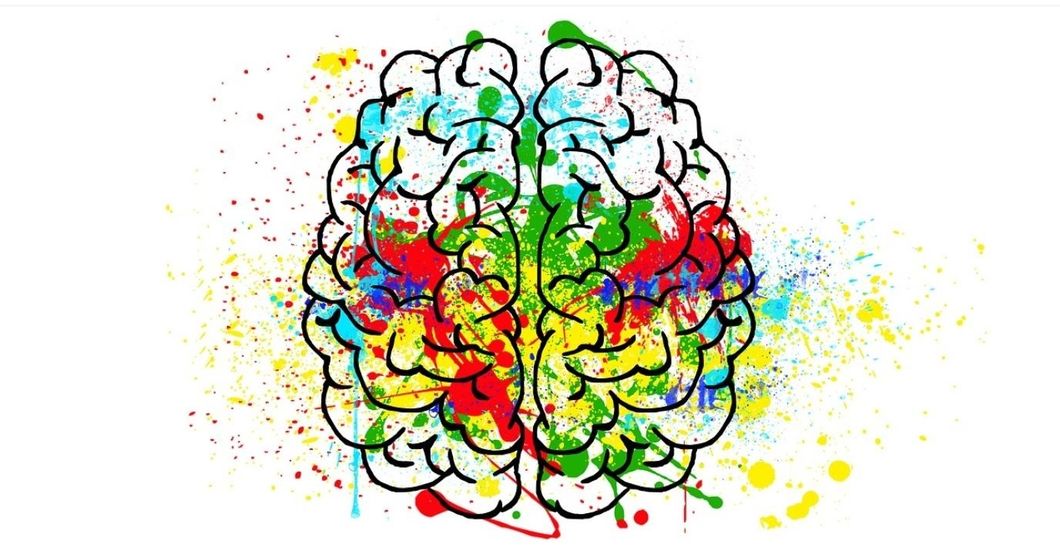Whether you have an anxiety disorder, misophonia, or are dealing with a stressful situation, everyone needs something to help them calm back down and focus on the here and now. When you can't "just calm down" or afford a visit to your mental health professional, what can you do? Sit there and let that anxiety eat away at you? Or push it aside and feel absolutely terrible at the end of the day? While these ten relaxation, grounding, and overall calming techniques won't cure your anxiety, they most certainly can provide some short-term relief so you can get through the day.
1. Belly breathing

Belly breathing or diaphragmatic breathing is a common exercise for singers, but it's also been shown to help decrease the stress responses that contribute to anxiety. By utilizing belly breathing, you can experience several benefits such as a loosening of your abdominal muscles, a slowing of your heartbeat, lowered blood pressure, and completely filling your lungs with oxygen. When combined, this helps you calm down and feel less tense.
2. 5-4-3-2-1 technique

Some people may have played this game with their children in the past: you ask them what five things they can see, what four things they can feel, three things they can hear, two things they can smell, and finally one thing they can taste. This is an excellent way to distract a child from a needle at the doctor's office, but it's also an excellent grounding technique when things become overwhelming; when you being to spiral out of control, worrying about things entirely out of your control, this technique can help bring you back to the here and now.
3. Mindfulness meditation

Mindfulness meditation is one of the simplest grounding techniques, but also one of the hardest for someone overwhelmed with anxiety. Rather than focusing on what's around you, focusing on your body and breathing can be both calming and help push away any intrusive thoughts. Researchers have found that mindfulness meditation may positively impact on generalized anxiety disorder and overall stress on a long term basis as well!
4. Yoga

It's cliché at best and not everyone has the time or resources for yoga, but it does more than just help with depression! Georgia State University's study wasn't the first nor the last to find that yoga helps with anxiety. Among its benefits, yoga helps alleviate the physical tension that anxious people tend to exhibit.
5. Confide in those closest to you

If you have any kind of stress or anxiety disorder you're struggling with, talk with your friends and family and make them aware of the situation. By isolating yourself or keeping these concerns to yourself, the likelihood of developing or worsening mental health conditions such as depression, generalized anxiety disorder, and post-traumatic stress disorder rise astronomically. Finding a group of people who can offer their support, such as friends or a mental health awareness group at your local college, can help you stay calm and healthy.
6. Sleep

Adults ages 18 to 64 need at least 7 hours of sleep, and often times anxiety can distract you so you can't get enough. When you're sleep deprived, your overall mood and level of anxiety worsen. If you feel anxious, use that hour between classes to take a quick nap.
7. Get moving

Not everyone has the time (or motivation) to work out on an elliptical for 2 hours at a time, but a 10 minute walk every day can help temporarily alleviate your anxiety. Not only does exercise help improve your sleep, but it provides other benefits such as reducing cortisol levels that worsen anxiety and releasing endorphins.
8. Volunteer

Though it sounds counter-intuitive, volunteering is a great way to both help others and relieve stress. Though little research has been conducted, it is theorized that volunteering may increase happiness and decrease stress and anxiety.
9. Chew gum

Simple as it is, chewing gum can relieve both anxiety and depression. On top of that, the harder you chew the more stress you relieve!
10. Laugh

It's hard to find something to laugh at while you're anxious, but pulling up your favorite comedian or chatting with your neighbor's five year-old may help more than you think. Laughing reduces cortisol, the chemical responsible for your "fight or flight" response, and soothes muscle tension so that you can relax more easily. Not only will you feel better emotionally, but your body will thank you in the long run!
Remember that these techniques are only a short-term fix and you may have to use two or more in conjunction with one another — or they may not work for you at all; if you are experiencing prolonged anxiety or stress, seeking out the help of a therapist may be beneficial. Just like you'd see a doctor for a broken leg, your mental health is of paramount importance to your daily living.







































